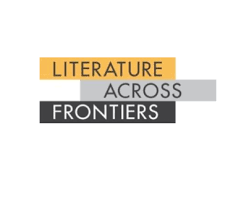Report: Improving Arabic-English Translation
Literature Across Frontiers has issued a short follow-up to their long 2011 report on the state of Arabic-English translation in the UK, authored by translator-editor Alice Guthrie:
 Many of the recommendations remain the same as those made in the 2011 report, just as most of the problems they highlight have stayed the same. At the opening, Guthrie writes:
Many of the recommendations remain the same as those made in the 2011 report, just as most of the problems they highlight have stayed the same. At the opening, Guthrie writes:
Looking back six years later, we can see that, although there have been some positive developments, many of the recommendations have not been implemented and the opening paragraph of the Executive Summary to the 2011 report applies now even more than it did in at the time of writing and publication.
There are a number of issues addressed, particularly in choice, quality, and reception of Arabic literature in English translation. But the disconnects between those who create and those who read books is something to which the report keeps coming back: “In a word, discoverability perhaps sums up much of what needs to change – both of books in the original Arabic by Anglophone publishers, and of translated Arabic books by Anglophone readers once they are published.”
Where things are discovered, they often follow particular interests determined by “extra-literary factors,” Guthrie writes, generally following the news cycle. Yet despite these extra-literary factors, “translation from Arabic largely remains the preserve of specialised publishers.”
The report bemoans that the “high quality journal offering in-depth critical reviews of translations recommended by Marilyn Booth in 2011 has not materialised” and that there is still vanishingly little “quality control assessment” across the scene.
Their updated recommendations include:
- Developing and improving training opportunities, especially in terms of short-term training, residencies and mentoring
- Raising the standards of undergraduate Arabic courses to be closer in line with other modern languages
- Improving translators’ contractual conditions and remuneration — a role for the Translators’ Association
- Creating support measures complementary to payment offered by publishers (following models and best practices in other countries)
- Improving mechanisms for translation quality control and feedback on the standard of published translations, and measures to improve editing practices of both source and target texts by means of internships, training and seminars, the use of bilingual editorial capacity, and the production of manual-type publications
- An up-to-date, fully detailed contact database of currently active translators (identified by country of origin, so as to assess UK/US questions of translation) needs to be established, not only for the languages in question. In the absence of any significant membership in professional associations such as the Translators’ Association, and in the absence of publicly accessible data, such information is hard to come by, except through publisher- by-publisher appeal.
They further suggest more support for workshops and seminars for reviewers and other measures to improve reviewing by “mainstream media,” as well as “a specialised review publication dedicated to a more detailed analysis which would improve translation quality as a result of qualified peer review.”
The report doesn’t neglect the issue of visas, and notes that resources should be dedicated to fostering a “more lively and equitable literary exchange.”
Read the report now on the LAF website.
